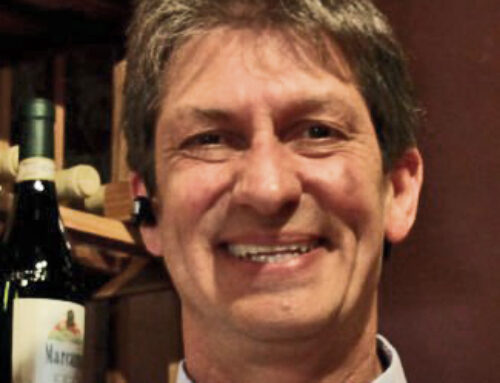Benjamin Parzybok’s novel is eco-fiction; focuses on climate change
Published in the March 2-15, 2016 issue of Morgan Hill Life
By Staff Report
The theme of the 2016 Silicon Valley Reads focuses on climate change and introduces an emerging literary genre, eco-fiction (also called climate fiction), with two novels that speculate about a future with extreme weather. Emmi Itäranta’s “Memory of Water” and Ben Parzybok’s “Sherwood Nation” were selected for this year’s program. As part of an event co-sponsored by the Friends of the Morgan Hill Library, Parzybok will meet with local readers at the library to discuss his book.
“Sherwood Nation tells about the lives of people and neighborhoods in Portland, Oregon, after years of severe drought and water rationing. Morgan Hill Life asked Parzybok about the story he wrote and what he might think about the possible consequences to society from a longterm natural catastrophe.
What inspired you to write your novel which discusses how a community reinvents itself out of a resource scarcity?
I think I was sick of Hollywood-esque apocalypse stories. Instead of lone-heroes and massive destruction, I wanted to show how people — a whole community — could thrive and reinvent themselves in times of extreme duress. Also, I started the book in Brazil in 2009, where I spent some time in favelas (shantytowns). I was very inspired by the community organizations there, and how people were thriving amidst resource scarcity.
One theme of the book is whether or not a democratic form of government can handle a major environmental crisis such as a prolonged drought. What are your thoughts on this?
I hope I’m wrong! But in an era where politicians willfully disregard scientific consensus, and where we continue to debate the reality of global warming despite so much evidence, it’s hard not to wonder if government is broken. We live in an age where corporate interests have far too much say over policy. While I’m disheartened by the progress of the federal government, I do continue to find hope in smaller, community and city-based actions.
One influence on your writing the book were the favelas of Rio de Janeiro — the extremely poor, non-sanctioned, densely-packed ghettos that have no city services and which are self-governed. How, in your opinion, might these be a warning of how vital it is to protect our natural resources for the preservation of a civilized society?
Favelas came about as a result of people who needed shelter — I don’t see them as a warning, but as an example of how communities beset with intense resource scarcity have had to come up with scrappy — and sometimes ingenious — solutions in order to thrive. I left some favelas (Rocinha in particular) feeling impressed with their resourcefulness. And in some ways, I can imagine looking to their example in how to thrive ourselves, as we adapt to living in a climatologically changed world.
One of “Sherwood Nation’s” main characters is Renee who grows from obscurity into a leader in the book and plays a role as the main arc of the story. Describe Renee and what she means to you in the journey she takes in the book.
To me Renee represents the best kind of hero. She begins as optimistic and cocksure, is put under a lot of duress, and eventually arrives at a place where she’s tasked with governing a large group of people. This is daunting. She is wracked with doubt and responsibility. She learns how to take big, but well-calculated risks, she makes mistakes, and she wisens. I loved playing with her arc as a hero. She has many small failures, but she is ambitious and unceasing in her attempts to make positive change.
The American West, some scientists say, might be moving into a era of the mega-drought, with climate change playing a role in creating a potential natural cataclysm. From your research in writing “Sherwood Nation,” how might this new era of drought reshape American society?
Have you seen the new Mad Max film? Just joking. Of course, I didn’t write the book to prognosticate but to play out one potential scenario. If I were to prognosticate, I think three things are likely in the coming 50 years: 1) a radical tightening of environmental restrictions, made politically possible by catastrophic weather-related events, 2) a lot of progress on clean energy technology and water purification/desalinization technologies (yay, Silicon Valley!) and 3) large-scale attempts to geo-engineer the planet (to keep coastal cities from sinking). This last one has me the most concerned. We are now well into an age of bio-engineering our bodies, but if you’ll remember, we started out that march by attaching leaches to “draw out bad blood.” We’re essentially at the “putting leaches on” stage of geo-engineering, and mistakes are inevitable. There is only one subject upon which to test, and we all live there.







